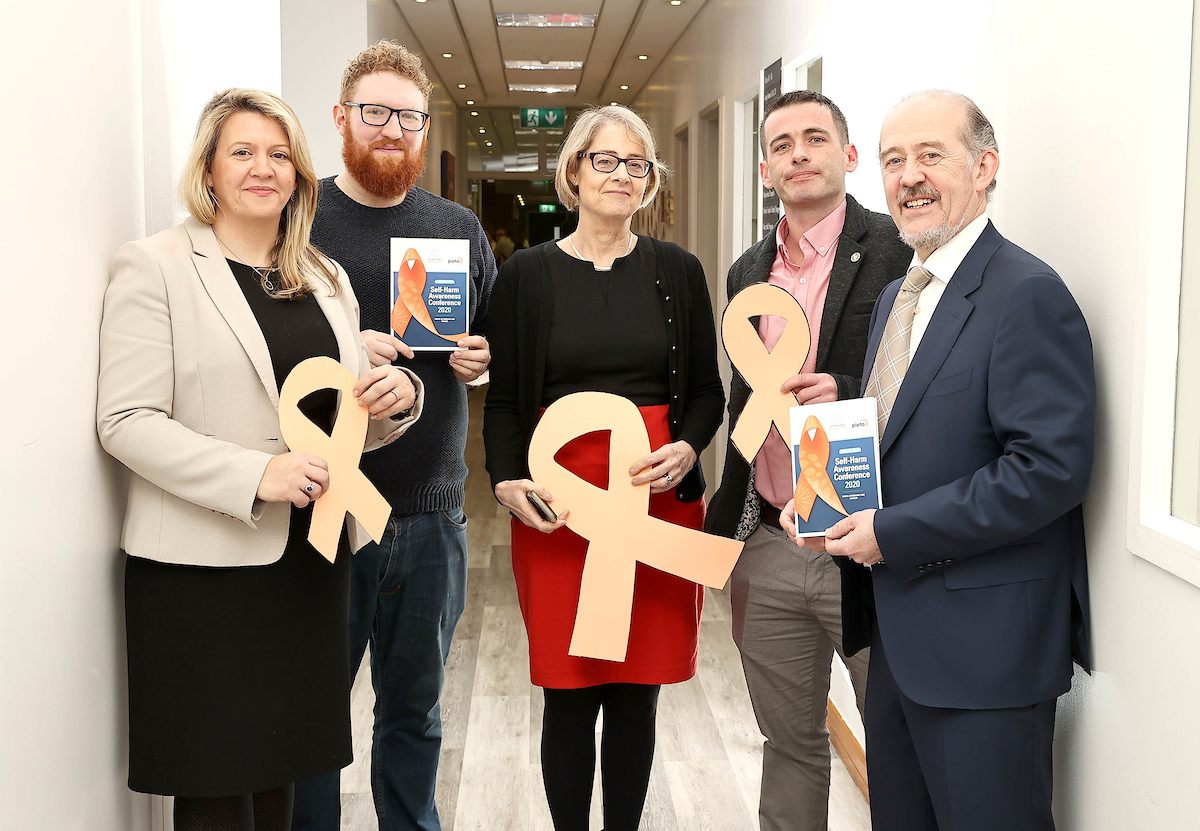
St Patrick’s Mental Health Services (SPMHS) and Pieta highlight need to respond to high-risk groups experiencing self-harm at annual conference
Dublin, February 28, 2020: Self-harm in the Traveller community is among some of the key topics to be explored at SPMHS and Pieta’s annual Self-Harm Awareness Conference, taking place today in St Patrick’s University Hospital, Dublin 8.
Evidence shows that members of minority groups, such as the Traveller community, are more vulnerable to self-harming behaviours. In the last six months, Traveller representatives told the Oireachtas of a mental health crisis and unprecedented rates of self-harm within the community.
Now in its fifth year, the Self-Harm Awareness Conference is a joint collaboration between SPMHS and Pieta that aims to provide education providers, healthcare professionals and parents, family members and carers with practical skills and advice for managing presentations of self-harm.
This year’s conference focuses on responding to high-risk groups such as adolescents and members of the Traveller community. Topics to be explored include the therapeutic use of metaphor when treating young people who self-harm, the assessment and management of patients presenting to emergency departments following self-harm, and actions needed to improve mental health within the Traveller community.
The conference also gives space to exploring the individual perspective of living with and treating self-harming behaviours, with award-winning author David Rudden discussing his personal experience of self-harm and journey to recovery on the day.
Speaking about the need for more research and understanding of self-harm in the Traveller community, Alan Kavanagh, Men’s Mental Health Outreach Worker with the Tallaght Travellers Community Development Project, said: “Barriers such as social exclusion, racism, discrimination, and poverty are known to contribute to trauma and mental health difficulties, which can underlie behaviours such as self-harm. While much research exists on the obstacles faced, and trauma transmitted, in various indigenous groups around the world, such analysis is non-existent from a Traveller perspective. It is vital that there is an understanding of what factors have caused trauma in the Traveller community in order to provide effective, culturally-specific treatment and reduce the high prevalence of behaviours such as self-harm.”
Discussing self-harm in high-risk groups, Dr Caroline Clements, Project Manager of the Manchester Self-Harm Project, noted: “The National Strategy for Preventing Suicide in England emphasises that suicide risk is high in particular groups such as middle-aged men, people in the care of mental health services, people in contact with the criminal justice system, as well as people with a history of self-harm. It is important to invest in research into self-harm so that we can understand why some groups, such as young women and people in midlife, are presenting to hospital for self-harm more often and how we can provide appropriate responses, now and into the future.”
Relevant statistics
- Studies have shown that self-harming behaviours in Ireland have risen significantly since records began in 2002; with a total of 12,588 presentations of self-harm in Ireland in 2018, compared to 10,537 presentations in 2002. Of these presentations, young people are a particularly at-risk group with some 29% increase in 10 to 24-year-olds presenting with self-harm since from 2007 to 2018 (National Suicide Research Foundation)
- 9% of Travellers aged 35-54 years have a psychological or emotional disability, compared to 3% of their non-Traveller counterparts (Oireachtas Committee Report, 2020)
RTÉ journalist Ailbhe Conneely spoke to our Chief Executive Officer, Paul Gilligan, and Leigh Kenny of Pieta, and visited the Tallaght Traveller Community Development Project to learn more about self-harm in high-risk groups and the Traveller community ahead of today's conference.
